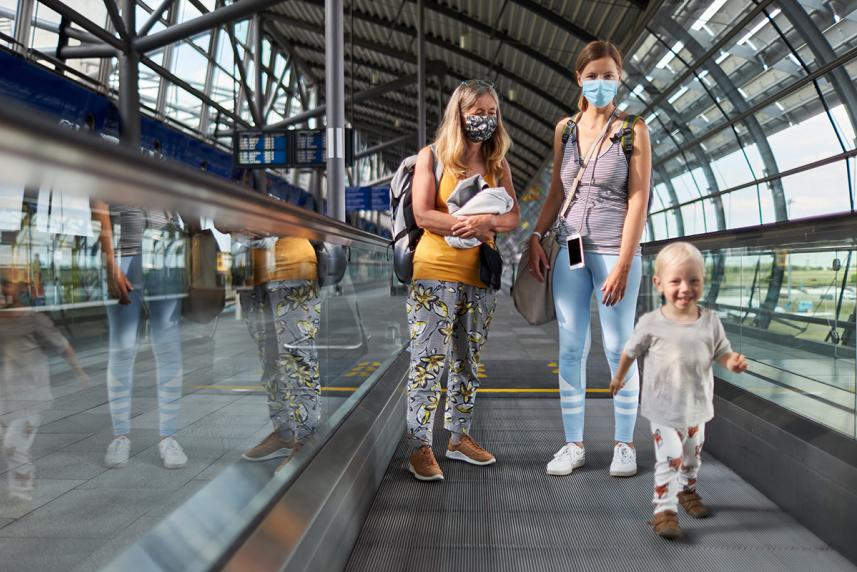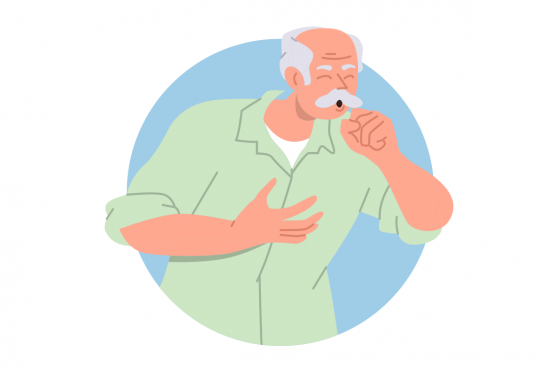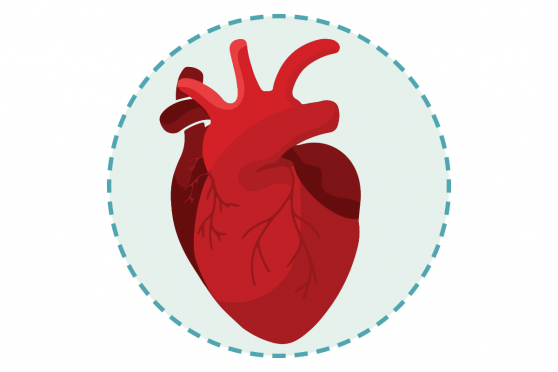Great reasons to get the COVID-19 vaccination
Here’s a look at some of the good things that will happen once you’re vaccinated.

As soon as Lisa Figueroa got her COVID-19 vaccine, she noticed some emotional benefits.
“I felt a camaraderie with the other folks at the place where I got my shot — both the people getting the shots and those giving them,” says Figueroa, a licensed clinical social worker and therapist. “Community is really important to me. It felt good to know we were all there to do what we could to fight this virus together and to care for and protect one another.”
Figueroa’s experience is common. Many vaccine recipients say they felt a sense of relief after getting the shot. And as the vaccine rollout increases in the United States, all adults are now eligible to receive the vaccine. Here are some top reasons to get your COVID-19 vaccine.
1. You’ll protect yourself from COVID-19
As of April 18, 2021, the coronavirus that causes COVID-19 has infected more than 31.4 million Americans and killed more than 560,000. You can protect yourself against serious infection by getting vaccinated against COVID-19.
Studies of different groups and vaccines show slightly different numbers, but all the information available so far shows vaccines work very well at preventing coronavirus infection. And they’re nearly 100 percent effective at preventing severe illness or death.
These numbers may change as we learn more about new forms of the virus (called variants). But the information available at present time shows the vaccines offer some protection against the most common variants in the United States, and they appear to be very effective at preventing severe illness from those variants.
Even if you’ve had COVID-19 in the past, public health officials recommend you get the shot. It is possible to get COVID-19 again, and many people report having more severe illness the second time around.
Whatever shot you receive, remember to follow the protocol. The vaccines from Moderna and Pfizer require two doses. The first dose delivers instructions to your body’s immune system to start making antibodies against the coronavirus. The second shot makes that initial response stronger and longer lasting. You will not get the full benefits of these vaccines if you do not get both doses.
2. You’ll free up hospital resources
Across the country, COVID-19 has left hospitals struggling with shortages of beds, supplies, and staff. By getting vaccinated, you can help ease the burden on our health care system.
According to a press release about the Moderna vaccine clinical trials, the data suggest the vaccine provides excellent protection from severe illness — indicating that it could prevent hospitalizations and deaths. The Pfizer vaccine study reported similar results.
The resources freed up by reducing COVID-19 hospitalizations will not only benefit people with COVID-19. More resources benefit all hospital patients, and it eases the stress on health care providers.
3. You’ll contribute to herd immunity
With any kind of immunization, we protect not only ourselves but also the people around us. A virus can’t spread without a host, and as more people get vaccinated, the pool of potential hosts shrinks. If enough people have immunity, the virus essentially disappears. That tipping point is known as community (or herd) immunity.
According to the Centers for Disease Control and Prevention, many childhood diseases are now nearly eradicated in the United States thanks to vaccination campaigns. Polio, for example, disabled more than 35,000 people a year in the late 1940s. Parents were afraid to let their kids go outside for fear they’d catch the virus. But thanks to the vaccine, not a single case of polio has originated on U.S. soil since 1979. This also serves as a reminder that today’s vaccinations can protect future generations.
It may take some time to reach the point of full herd immunity against COVID-19. But those who are vaccinated along the way will help reduce the chances of the virus mutating and creating new variants that don’t respond to current vaccines. The virus can only mutate if it spreads — so it needs those unvaccinated hosts. The smaller the number of unvaccinated hosts, the fewer chances the virus has to mutate.
4. You’ll get a mental health boost
The pandemic — as well as the loneliness, fear, and anxiety associated with it — has wreaked havoc on Americans’ mental well-being. In fact, reports of anxiety and depression were up 30 percent in 2020.
As a therapist, Figueroa can empathize. The good news is that getting vaccinated can help give you an emotional lift.
“There are so many potential benefits from a mental health standpoint,” she says. “Reduction in anxiety and worry about the virus and illness. A sense of empowerment [because] this is something concrete we can do to protect ourselves and others. Hope for the future and a return to some kind of normal.”
Getting vaccinated can also make it easier for people with preexisting mental health conditions — as well as those with new or worsening symptoms — to begin or return to in-person therapy.
5. You’ll inspire others to get vaccinated, too
In a survey of 12,648 U.S. adults published in early December 2020, 39 percent of people said they probably or definitely wouldn’t get a COVID-19 vaccine when it became available. But about half of those people also said they’d reconsider once they saw how the process went for other people.
That's why Figueroa was happy to be among the first Americans to receive the shots under the FDA’s Emergency Use Authorization. “If I can help others to feel more comfortable with the vaccine while protecting myself, that’s the best kind of win-win,” she says.
And you sharing your story of getting the shot might be the very thing that convinces a friend or loved one to do the same.
6. You’ll be following your medical provider’s advice
It’s one thing when an expert on TV tells you to get the COVID-19 vaccine. But when your own health care provider advises you to get it, that seals the deal. After all, nobody knows as much about your health as the provider who’s been caring for you for years.
In a 2018 survey, 73 percent of people worldwide said they trust a doctor or nurse more than any other source of health advice.
“Way back last summer, when the vaccine trials were going on, lots of my patients told me they were hesitant about getting the shot when it came out,” says Kathryn Boling, M.D., a family physician with Mercy Medical Center in Baltimore. “So I volunteered to take part in a study so that I could reassure them. I could tell them about any side effects I might have, and if something terrible had happened to me, I would have told them about that, too.”
When the vaccines were ready, and it was time for her patients to roll up their sleeves, they listened to Dr. Boling’s advice.
“They trust me to be honest with them — and that trust helped them make the decision to get vaccinated themselves,” she says. “They knew that I had their well-being at heart. So if you trust your doctor, get the shot when they tell you to.”
The information in this story is accurate as of press time and posting on April 29, 2021. To limit the spread of the coronavirus, it’s important to continue practicing social distancing (keeping at least 6 feet away from people outside your household) and to wash your hands frequently. You should also be appropriately masked any time you’ll be in public. According to the CDC’s latest guidance, this means layering a disposable surgical mask underneath a snug-fitting cloth mask or placing a mask fitter over your cloth mask to ensure a tight fit. Because the situation surrounding COVID-19 continues to evolve, we encourage readers to follow the news and recommendations for their own communities by using the resources from the CDC, WHO, and their local public health department.



